<no title, writer on strike>
Spoiler alert: TV writers have every reason to complain
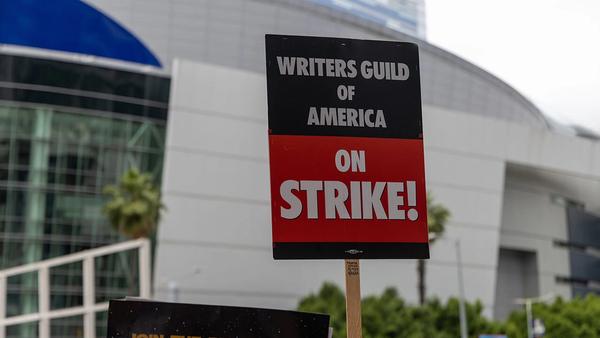
Writers in TV & Film make less than their counterparts in other industries in similar roles.
Employee sentiment is falling behind for writers in Hollywood, reflecting the dissatisfaction that drives the strike.
Attrition rates for writers are very high and were elevated even before the strike. Almost half of the transitions are to roles outside the industry, signaling a writer exodus out of Hollywood.
In early May, thousands of writers went on strike against Hollywood studios over what they said was an existential threat to their livelihoods. The strike is expected to cost the Southern Californian economy $30 million a day, and breaks over 15 years of labor peace in the entertainment industry. As the talks between the studios and the WGA are resuming, Revelio Labs is exploring what led to this major disruption.
One of the key points in negotiations is pay: Writers claim that the rise of streaming services have negatively impacted their residual pay (the paychecks that writers receive when their shows get syndicated), which was an essential part of their compensation. Comparing salaries for writers in Hollywood with salaries for writers in other industries, we find that TV & Film writers are paid nearly 10% less than other writers–and this does not even take into account the high cost of living in the Los Angeles area.

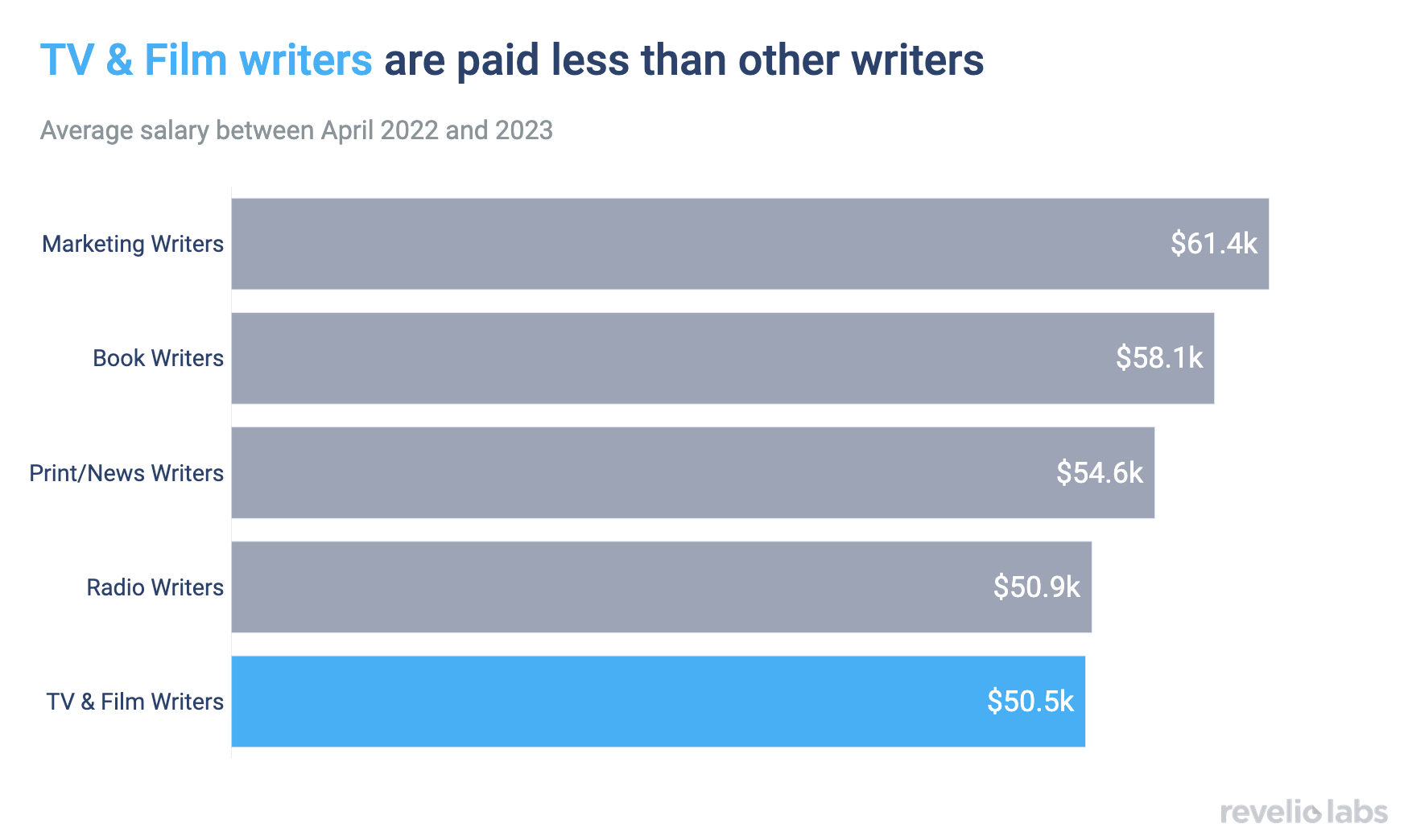
Furthermore, employee sentiment for TV & Film Writers has been falling behind that of writers in other industries as well. This could be a reflection of the change in working conditions of Hollywood writers, who have complained that their learning and development opportunities have been curtailed by the rise of streaming productions. Long gone are the days when writers would be on set during production for extended periods of time, allowing them exposure to various skills that could help them navigate different roles in the industry.

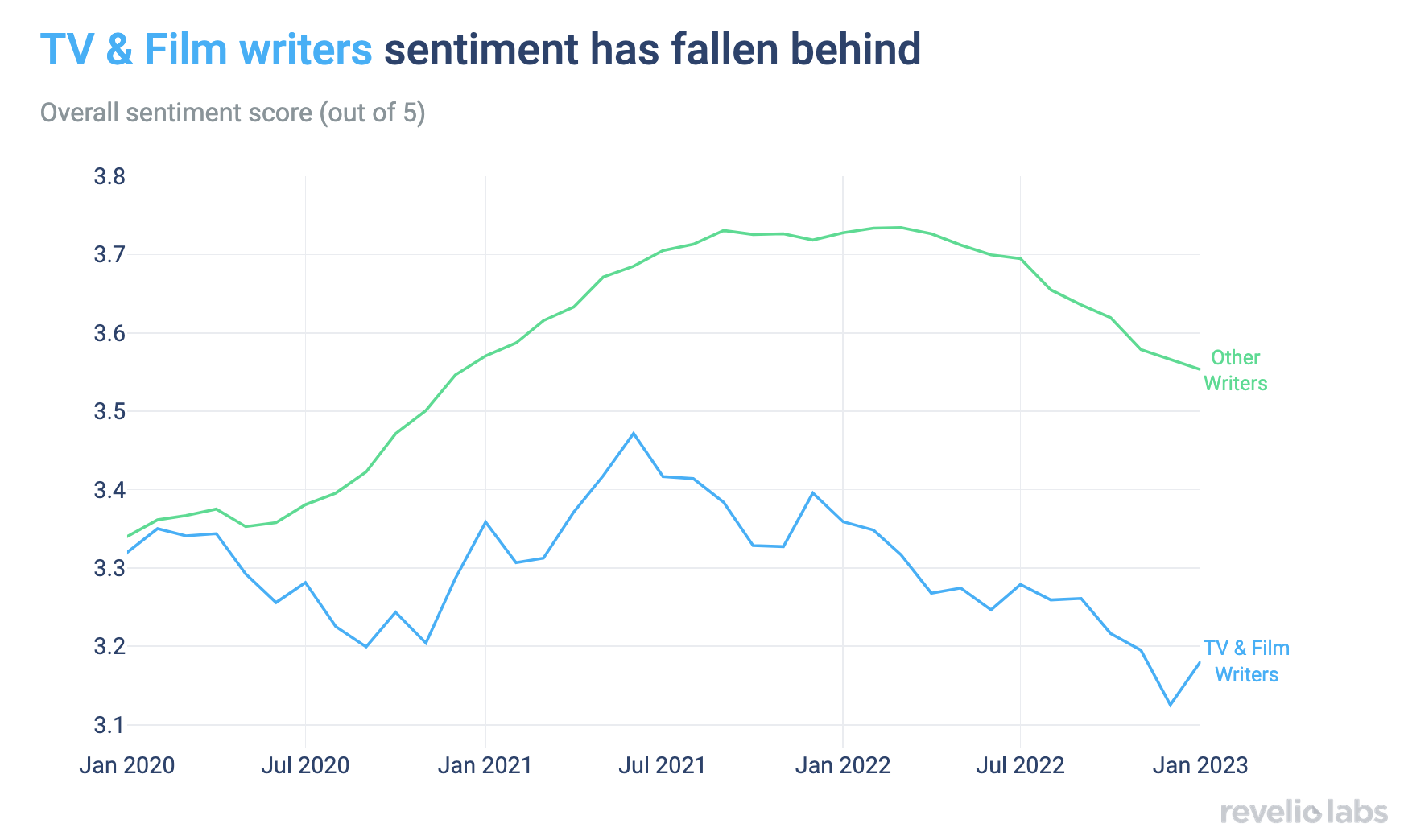
Sign up for our newsletter
Our weekly data driven newsletter provides in-depth analysis of workforce trends and news, delivered straight to your inbox!
It doesn’t come as a surprise that the dissatisfaction in pay and worker sentiment has resulted in this large disruption of the industry. The strike might make the news, but the writers’ exodus out of Hollywood predates both the strike and the release of generative AI tools. Attrition rates for TV & Film writers are very high, and they have been rising in the last few years.

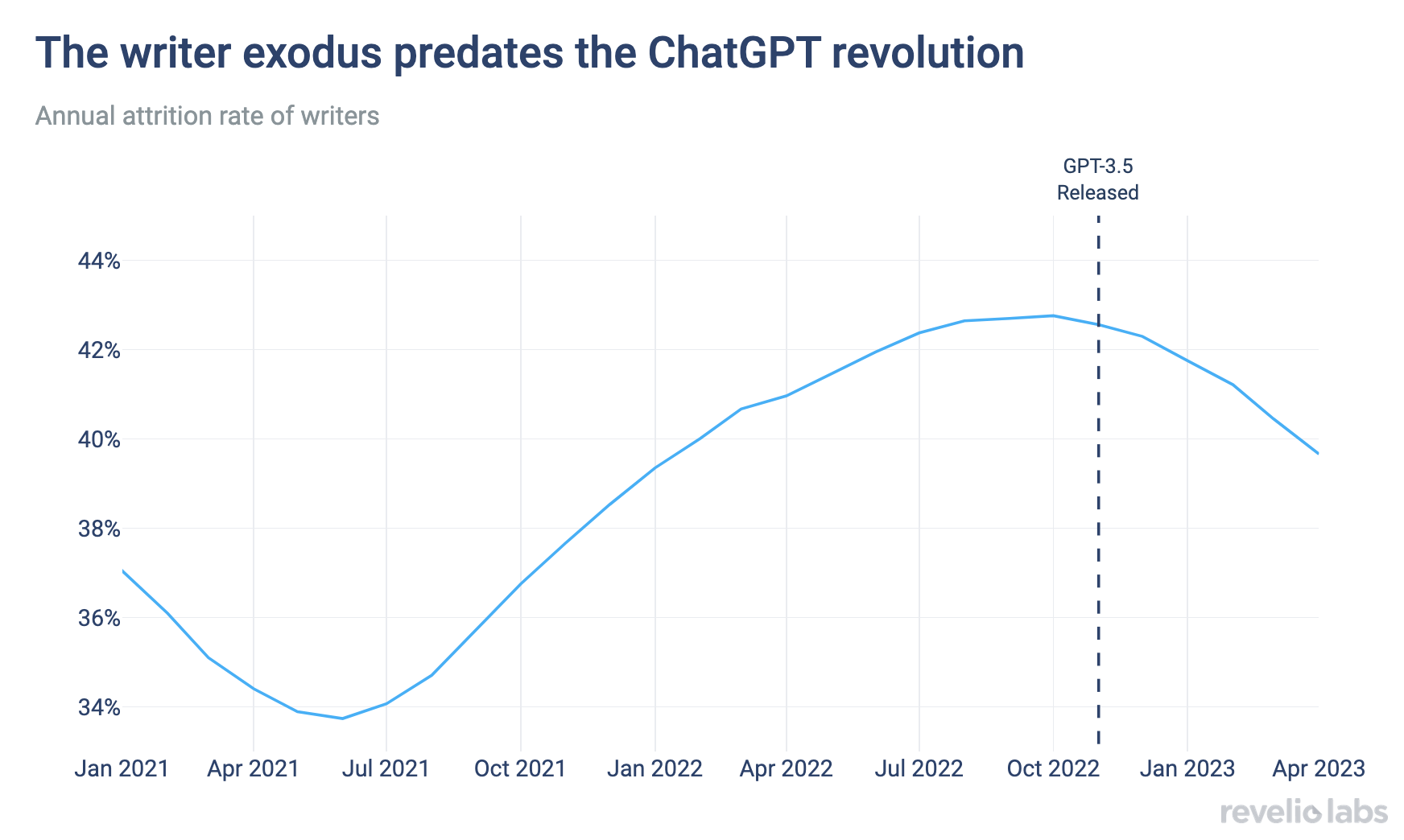
On top of the elevated workforce attrition rates, almost half of the transitions out of TV & Film writing are into roles that are outside the industry: only 55% of writers stay in TV & Film when they transition into a new job.

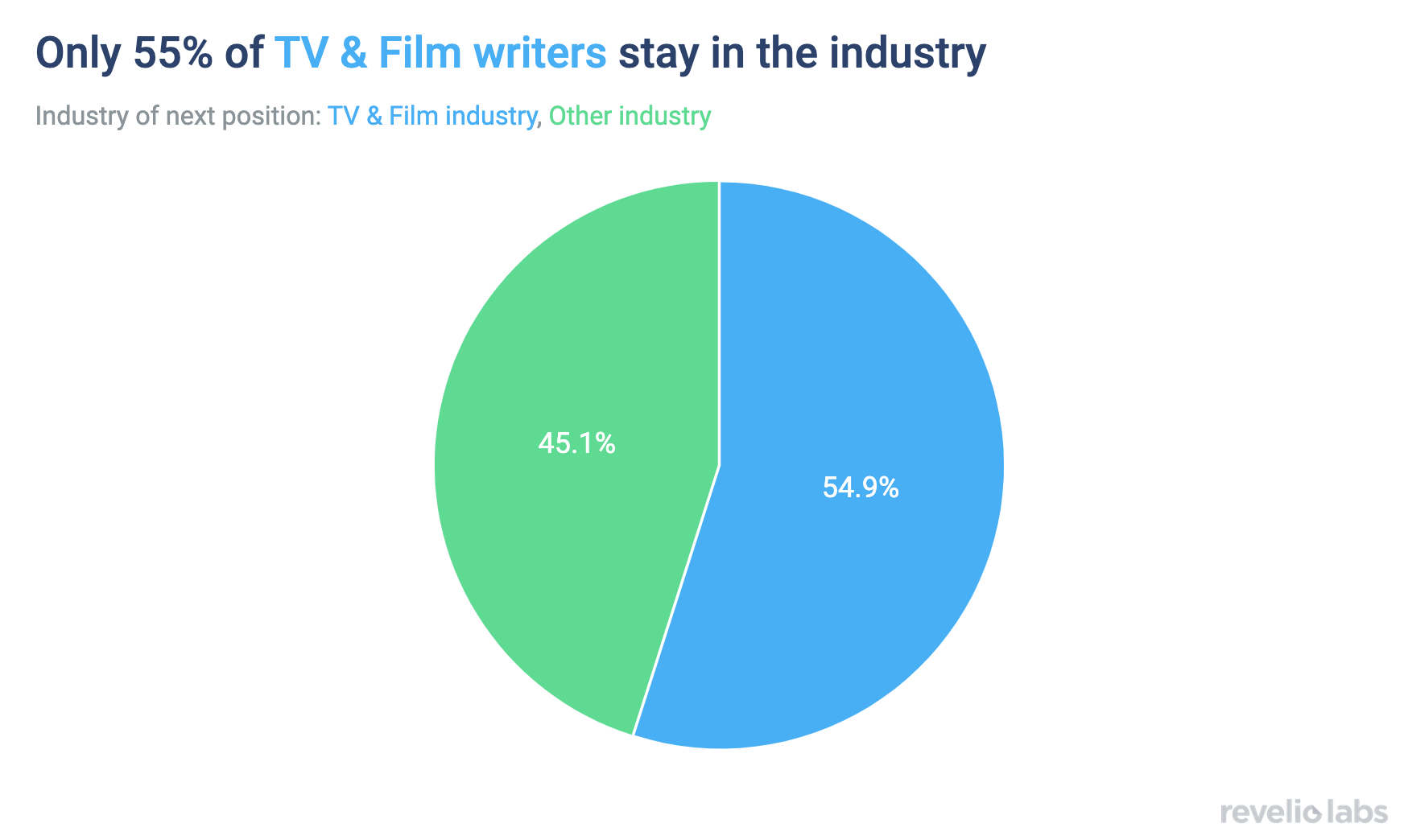
Finally, some of the companies with the biggest writer attrition problem include the studios that were mentioned by the WGA as culprits, such as MGM, Walt Disney Studios, and Paramount Pictures.

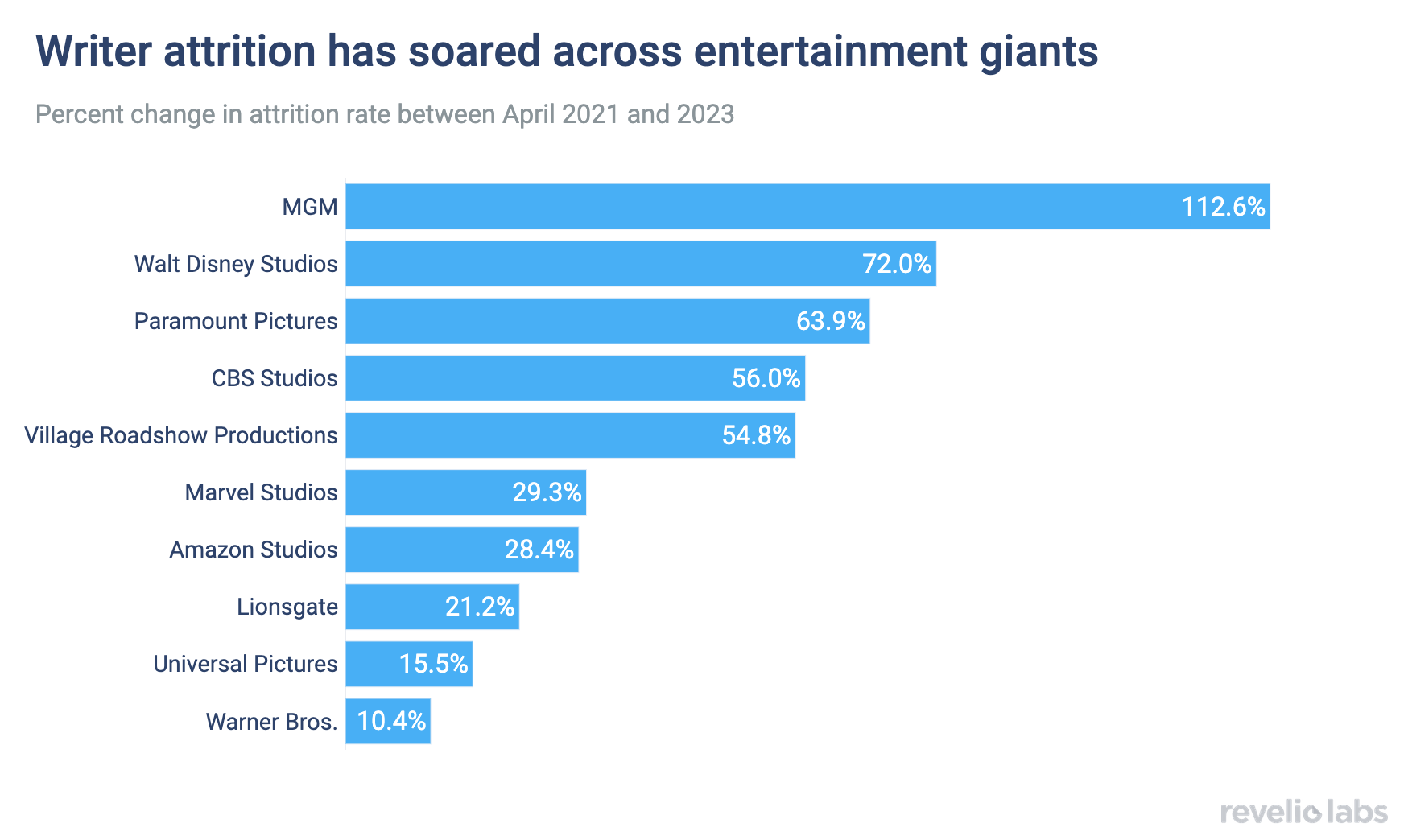
Transitions out of the industry coupled with the high workforce attrition rates amounts to a full-on exodus of Hollywood writers out of the industry, and it predates the strike or the release of ChatGPT. Revelio Labs finds evidence of employee dissatisfaction, especially around pay, which is in line with the complaints brought forward by the Writers’ Guild of America. It seems like the writers strike might just be the tipping point of a much bigger problem within the occupation.

